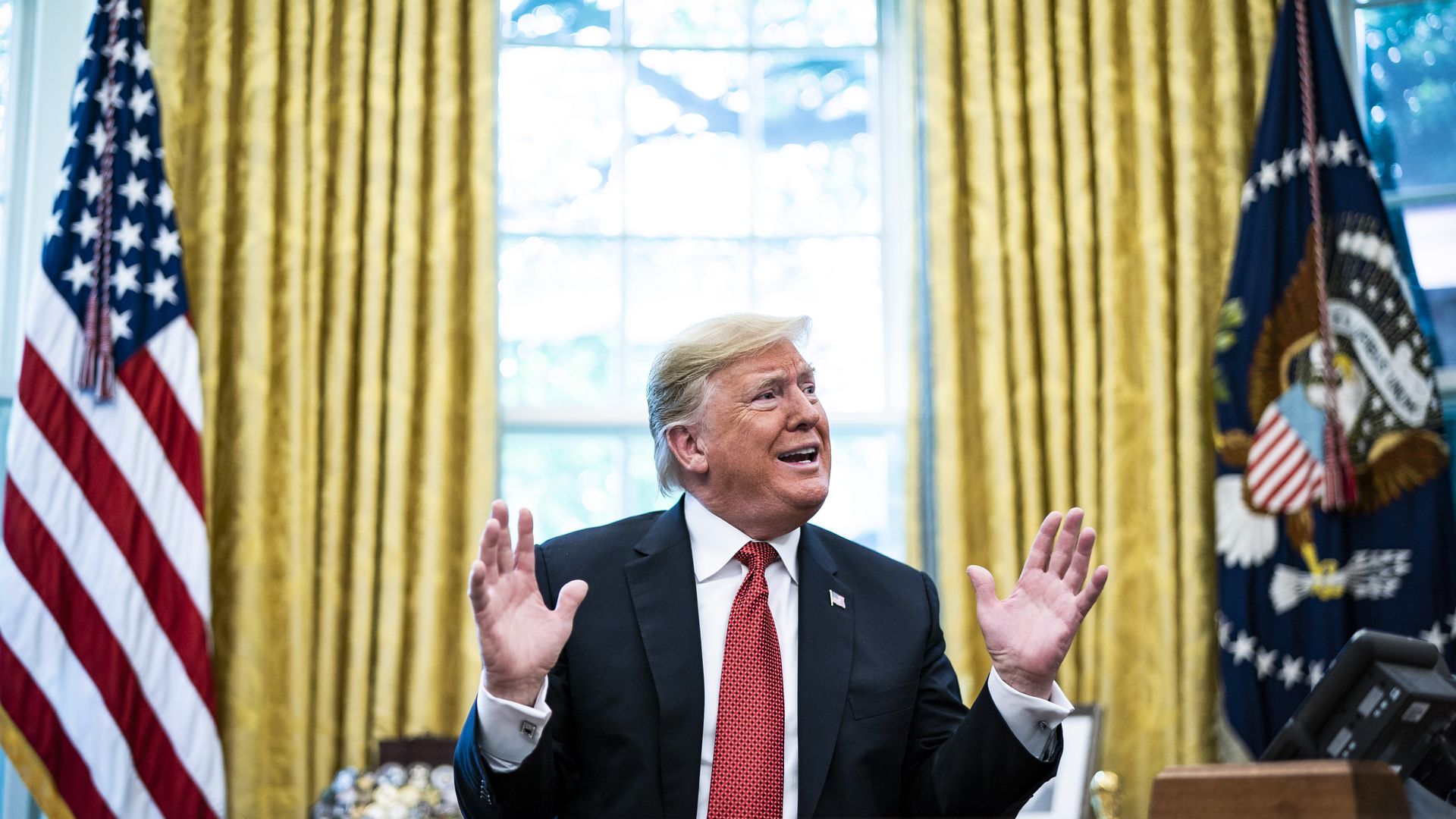Jan 8, 2019 - Politics & Policy
Trump does not invoke emergency powers on border security
Add Axios as your preferred source to
see more of our stories on Google.

Donald Trump in the Oval Office. Photo: Jabin Botsford/The Washington Post via Getty Images
